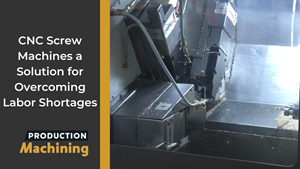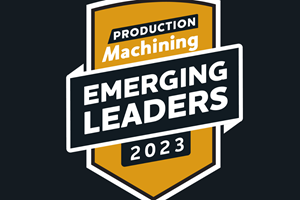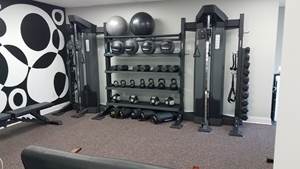A Lesson Often Missed
If math and science are presented in ways that make sense, the challenges can be exciting instead of tedious. Problem solving becomes fun instead of an exercise of memorization.
A good teacher can inspire hope, ignite the imagination, and instill a love of learning.
— Brad Henry
The shortage of skilled labor in our industry has been an ongoing issue. If the new administration is successful in its plans to bring still more manufacturing back to the states, we will need to be even more diligent in our pursuit for qualified personnel. A number of strategies have been put in place through the years to increase interest in fields of study to help alleviate the problem.
The STEM (science, technology, engineering and math) curriculum integrates these four disciplines and presents them within real-world scenarios. This structure helps the students to better understand their application and generally makes the subject matter more interesting. This is a key ingredient to maintaining this level of interest through graduation and into a career.
During my early days in school, I was a very dedicated student and got excellent grades. But by the time I reached junior high, I no longer considered school and learning and getting along with teachers to be cool. My effort lapsed, my study skills diminished and my performance suffered. My grades were still on the north side of the acceptable border (as defined by my parents), but only by a little. I wasn’t the model student most people had grown accustomed to seeing.
When I got to high school, classroom lessons became far more challenging, and I began to feel lost. The struggle was most noticeable in my Algebra classes during freshman and sophomore years. When I was young, I loved math, and I excelled at it. But at this stage, I just couldn’t grasp the concepts, and I continued to fall further behind.
For some time, I attributed my poor performance to simple laziness and accepted it as an adolescent blunder from which I couldn’t fully recover. I mostly blamed myself, saw some fault with my friends and occasionally may have singled out a legitimately bad teacher or two. But then, at the start of my junior year, a profound change occurred.
I was instantly fascinated with my geometry class. The math problems in this class were presented in a different way. From figures and spatial relationships, I was able to visualize practical application of the principles. I wouldn’t say geometry was easy, but it came natural to me, and problem solving was fun again. So much fun, in fact, that I would work at problems until I knew I had them right, and never got a wrong answer on a test or quiz the entire semester. The following semester, trigonometry followed suit. My grades weren’t quite perfect in this class, but I still thoroughly enjoyed it and performed quite well.
I realize that it’s common for some people to be better at algebra and others to be better at geometry and trigonometry. But I’m sure my success in the latter had more to do with how the material was presented than the type of math it involved. I’m convinced that it was my ability to grasp why certain steps were required to attain a solution that made me want to find the answer. I wasn’t reluctant to do the work when the goal was a practical end.
I think it’s safe to say that math and science don’t necessarily come easy for most people. But if they are presented in ways that make sense, the challenges can be exciting instead of tedious. Problem solving becomes practical and fun instead of an exercise of memorization and detail.
The U.S. Department of Education reports that only 16 percent of American high school seniors are proficient in mathematics and interested in a STEM career. Among those who go on to pursue a college major in the STEM fields, only about half choose to work in a related career.
To find more people for these fields, instead of trying to determine what it is that makes a person good at math or science, we should accept that it will be challenging for anyone. And with that, we need to make facing the challenges interesting so that anyone with the ambition to succeed in these areas can. That’s where the successful STEM education programs come in.
Many people end up in these careers because they know a good number of high-paying jobs are available. While that’s a nice benefit, it’s the wrong approach. They should want these careers because they are interested and find reward in solving problems that require math and science.
Related Content
Video Tech Brief: CNC Screw Machines a Solution for Overcoming Labor Shortages
CNC screw machines can exceed job shop productivity and enable manufacturers to overcome perpetual employment gaps.
Read More2023 Emerging Leaders Strengthen Their Staffs, Solve Problems
Superb critical thinking, top-notch leadership skills and a passion for building a strong team are a few of the common traits held by this year’s five Production Machining Emerging Leader award winners.
Read MoreApplying a Healthy Approach to Employee Investment
Service Center Metals’ on-site health center offers its employees and their families free same-day health care and, in return, the employer is gaining many benefits including a healthier workforce and attracting potential employees.
Read MoreRecognizing Signs of a Degrading Workplace Culture
Is your machine shop missing key “culture elements?” Here are ways to identify if your organization is heading in the right or wrong direction in terms of establishing a healthy company culture.
Read MoreRead Next
5 Aspects of PMTS I Appreciate
The three-day edition of the 2025 Precision Machining Technology Show kicks off at the start of April. I’ll be there, and here are some reasons why.
Read MoreSeeing Automated Workpiece Measurement in Real Time
User-friendly inspection software for CNC machining centers was shown at IMTS 2024 monitoring measurements between and after machining while performing SPC based on recorded measurement values.
Read MoreDo You Have Single Points of Failure?
Plans need to be in place before a catastrophic event occurs.
Read More























